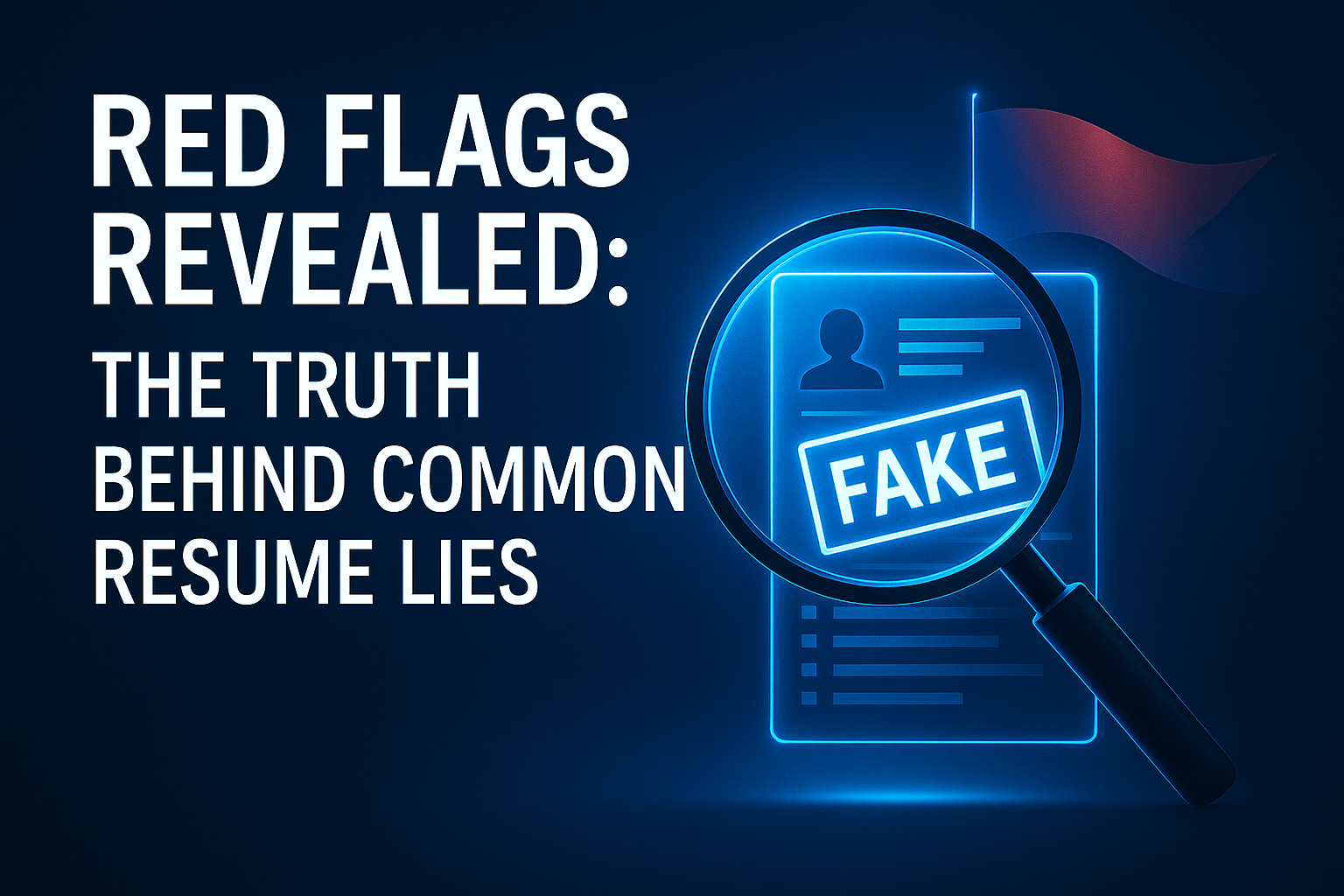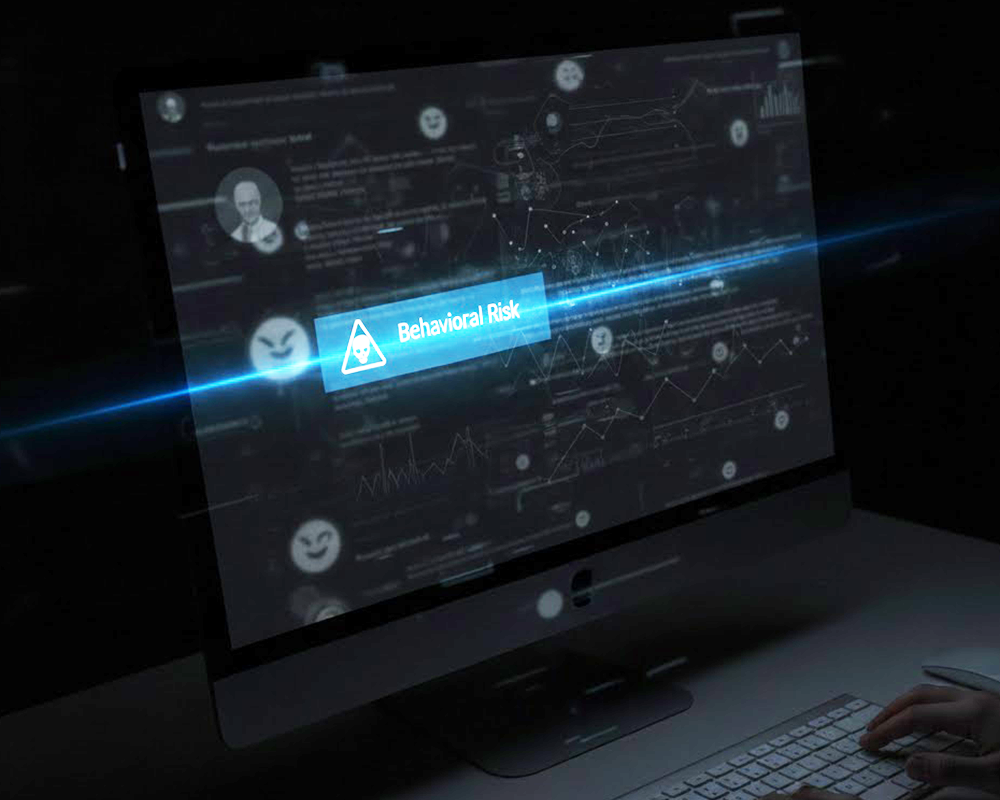In today's hyper-competitive job market, candidates aren't just polishing their credentials — they're fabricating entirely new ones. What started as innocent "resume enhancement" has evolved into sophisticated deception that's costing businesses millions. And if you think your current screening process is catching these lies, you might be in for a rude awakening.
Let's talk hard numbers that should keep any hiring manager up at night:
- 78% of resumes contain misleading information (according to a 2023 Society for Human Resource Management study).
- Nearly 1 in 3 applicants falsely claim proficiency in technical skills they simply don't possess (ResumeBuilder, 2022).
- The average cost of a bad hire ranges from $15,000 for entry-level positions to a staggering $240,000 for executive roles (including recruitment, training, lost productivity, and termination costs).
Most alarming? Traditional database background checks are catching less than half of these sophisticated falsehoods. It's time to face the hard truth that your applicant with the impeccable resume sitting in your inbox right now could be your next costly hiring disaster.
Here's what you need to know about the most common lies and how to spot them before they walk through your door and onto your payroll.
The 7 Most Common Resume Lies (And How to Catch Them)
-
Phantom Degrees and Certifications
The Lie: Claiming to have degrees they never earned, attending prestigious schools they never set foot in, or listing certifications they don't hold.
What If Scenario: What if your new CFO candidate claims an MBA from Cornell, but actually only attended a single semester before withdrawing? Without proper verification, you could place someone without proper qualifications in charge of your entire financial strategy.
How to Catch It:
- Direct verification with institutions (usually with the National Student Clearinghouse).
- Request degree certificates and transcripts.
- Verify certification numbers with issuing bodies (if possible).
-
Employment Timeline Manipulation
The Lie: Extending employment dates to cover gaps, claiming concurrent employment, or fabricating entire positions.
What If Scenario: What if a finance candidate extended their employment at a major bank by 18 months to hide a termination for compliance violations? Standard employment verification might miss this completely if your process only confirms the dates provided by applicants rather than requesting complete employment history.
How to Catch It:
- Cross-reference employment history with tax records (when legally permissible).
- Look for overlapping employment that doesn't make logical sense.
- Verify exact start and end dates rather than just confirming the dates provided by the applicant.
-
Title Inflation and Responsibility Exaggeration
The Lie: Giving themselves promotions that never happened or claiming leadership over projects/teams they merely participated in.
What If Scenario: What if an IT candidate claimed to be "Director of Cybersecurity" when their actual title was "Security Analyst"? They might also claim to have led a team of 12 when they had no direct reports. Without proper verification, you could hire someone lacking the leadership experience needed for a crucial role.
How to Catch It:
- Specific role verification beyond just dates of employment.
- Reference checks with actual supervisors (not just HR).
- Social media analysis to identify inconsistencies in reported titles.
-
Phantom Companies
The Lie: Listing experience at companies that either don't exist or have gone out of business, making verification nearly impossible.
What If Scenario: What if a candidate created a completely fictitious tech startup with fake references, fabricated accomplishments, and even a hastily created website? Without proper investigation, you wouldn't discover that the domain was registered just two weeks before their application.
How to Catch It:
- Corporate records searches.
- Business registration verification.
- Digital footprint analysis of the company.
- Cross-reference with industry databases.
-
Skills Misrepresentation
The Lie: Claiming proficiency in software, technologies, languages, or methodologies they've barely used.
What If Scenario: What if a developer claimed "expert-level Python experience" but couldn't solve basic coding problems when tested? After spending $20,000 in relocation expenses, you might discover they can't perform the job they were hired to do.
How to Catch It:
- Skills assessments and practical tests.
- Technical interviews with subject matter experts.
- Portfolio review and code samples for technical positions.
-
Hidden Criminal History
The Lie: Failing to disclose criminal records, especially from other states or jurisdictions.
What If Scenario: What if an applicant for a financial services position didn't disclose a financial fraud conviction from another state? A standard background check might miss it entirely if it only covered their current state of residence, potentially putting your clients and company at risk.
How to Catch It:
- Multi-jurisdictional criminal searches.
- Federal, state, and county-level checks.
- Continuous monitoring for existing employees.
-
Digital Identity Manipulation
The Lie: Creating a scrubbed online presence, fake recommendations, and manufactured professional networks.
What If Scenario: What if a marketing executive candidate presented a polished LinkedIn profile with glowing recommendations, but beneath the surface lurked a history of inappropriate workplace behavior they had attempted to delete online? Without proper social media analysis, you might miss crucial character red flags that could impact your workplace culture.
How to Catch It:
- Comprehensive social media analysis (not just a quick Google search).
- Cross-reference digital connections and recommendations.
- Advanced search techniques to find deleted content.
How CIChecked's Comprehensive Approach Changes the Game
What sets CIChecked apart isn't just what we find—it's how we find it. While other providers run names through databases and call it a day, our licensed investigators approach each background check like the critical business intelligence operation it truly is.
We don't just verify what candidates tell you; we uncover what they're strategically hiding. Our investigative approach goes beyond standard database searches:
- Licensed private investigators who understand how to dig deeper than databases.
- Comprehensive verification methods that cross-check information from multiple sources.
- Advanced social media analysis using proprietary technology to reveal hidden concerns.
- Proprietary database access not available to standard background check vendors.
- Human expertise applied to every check, not just algorithm-based results.
Unlike basic background checks that only scratch the surface, CIChecked delivers comprehensive, legally compliant insights that protect your organization from sophisticated resume fraud and potentially problematic hires.
Contact us today to learn more about our services and how our investigative approach can protect your organization from sophisticated resume fraud.






